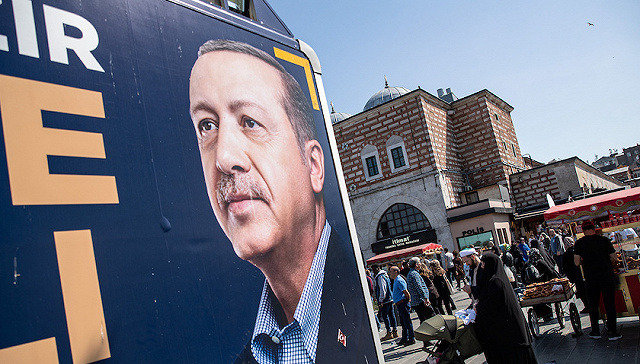After the dust settled in the general election in Turkey, the leaders of Western countries who had been silent for a long time finally began to speak out, demanding that the government of the country’s elected President Erdogan agree to Sweden’s membership of NATO.
Swedish Prime Minister Ulf Kristersson recently wrote in the Financial Times that Sweden had delivered on the final piece of its agreement with Turkey as a new anti-terrorism law came into force on Thursday. The agreement is aimed at gaining the latter’s support for Sweden’s entry into the NATO military alliance.
“It’s time to seriously consider Sweden’s application to join NATO. Only Russian President Vladimir Putin can benefit from preventing Sweden from joining NATO,” Kristerson wrote.
After sticking to a policy of military non-alignment for more than two centuries, Sweden applied to join NATO after the conflict between Russia and Ukraine broke out last year. But Erdogan disputed that, saying the Swedish government needed to do more to fight terrorism. The standoff has also led to a rift between Türkiye and its NATO allies.
Erdogan said the Nordic countries were weak on terrorism, especially against exiles and refugees belonging to the Kurdistan Workers Party (PKK), which is designated a terrorist organization by Turkey, the United States and the European Union. “These countries have almost become guest houses for terrorist groups,” Erdogan said. “We cannot approve.”
However, analysts pointed out that Erdogan’s opposition to Sweden’s joining NATO is mainly to gain influence among voters before the election, and his position will change after he wins. The United States and other NATO allies have also stepped up efforts to persuade Türkiye to make concessions.
NATO Secretary-General Jens Stoltenberg said on Tuesday that Sweden was “absolutely likely” to join NATO before its July 11 summit in Vilnius. He said in a tweet that he had a “good call” with Erdogan that day and that the two discussed “finalizing Sweden’s NATO membership”.
U.S. Secretary of State Antony Blinken, who also visited Sweden this week, said “now is the time to move forward and we hope to see this done before the Vilnius summit.”
U.S. President Joe Biden spoke to Erdogan on Monday to congratulate him on his re-election. “He still wants to do something with the F-16,” Biden said. “I told him we want to make a deal with Sweden, so let’s get this done.”
Turkey wants to buy billions of dollars worth of F-16s from the United States, but the deal has been stalled by Congress. The Biden administration approved a $259 million F-16 upgrade package in April, shortly after Turkey agreed to allow Finland to join NATO.
Other NATO countries have also urged Erdogan to support Sweden’s membership, arguing that Sweden’s membership is vital to the security of the Nordic and Baltic regions since the outbreak of the Russia-Ukraine conflict. “We expect Turkey will now approve Sweden’s application,” Prime Minister Stöller of Norway, another Nordic country, said earlier this week.
Right and left
Strategically located at the junction of Europe and Asia, Turkey has been a member of NATO since 1952 and has the organization’s second-largest military after the United States, with 50 nuclear warheads and a major air force for NATO forces base. At the same time, Turkey is not only a manufacturing powerhouse, but also an important exporter of agricultural products to many countries. In addition, Türkiye hosts more than 4 million refugees.
But Turkey’s reliance on Russia for energy, trade and hard currency imports and its refusal to impose sanctions on Russia and buy weapons systems from Russia has unnerved Western countries.
Turkey’s trade with Russia rose to $68.19 billion last year, doubling from $34.73 billion in 2021, according to the Turkish National Statistics Institute. Turkey currently accounts for 7% of Russia’s exports, up from 2% in 2021.
Russian tourists and expatriates whose travel is severely restricted, including billionaire oligarchs evading sanctions, have also poured into Turkey. Earlier this year, Putin also waived Turkey’s purchase of natural gas from Russia, a move that is believed to have helped Erdogan win the election.
While maintaining good relations with Russia, Turkey also provides weapons and aid to Ukraine, such as the powerful and lethal Bayraktar military drone. More recently, Erdogan’s government also brokered a Black Sea grain agreement between Russia and Ukraine, which allowed the reopening of key Ukrainian grain export ports.
bargaining chips
Analysts say it is not in Turkey’s best interest to continue opposing Sweden’s NATO membership. Timothy Ash, emerging market strategist at BlueBay Asset Management, pointed out that if Erdogan continues to delay Sweden’s accession to NATO, it is expected to lead to a major crisis in Turkey’s relations with Western countries.
“Given the pressure on the Turkish lira, expect Erdogan to compromise on this issue,” Ash said. The Turkish lira has lost about 80 percent of its value against the dollar over the past five years as Erdogan has adhered to an unorthodox monetary policy line.
“He’s already squeezed all the political capital he can out of opposing Sweden’s NATO membership before the election, and now that he’s won the election, it’s only going to be bad if it’s delayed,” Ash said. Be part of it at the NATO summit next month.”
Emre Peker, a Turkey expert at risk analysis firm Eurasia Group, said domestic economic difficulties meant Erdogan would be more cautious in foreign affairs, and he could not afford to “fall behind” when it came to seeking investment and aid. chain” consequences.
Pique believes that Turkey will continue to maintain transactional tensions with the United States and the European Union and avoid Western-style sanctions on Russia to allow Turkish banks and companies to continue to conduct significant trade with Russia.
Source : Baijiahao

